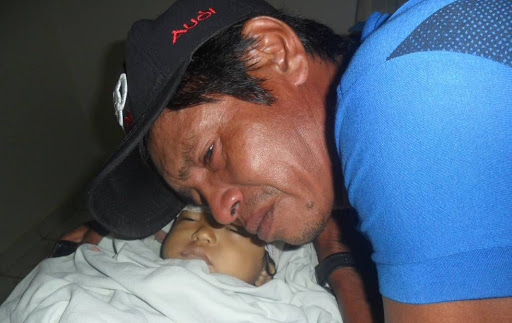RIO DE JANEIRO, BRAZIL – Data from the Ministry of Health show a clear trend: between January and September 2019, 530 indigenous babies up to one year of age have died. This represents an increase of 12 percent compared to the same period in 2018.
In the first month after the end of the agreement with Cuba in January 2019, 77 deaths of indigenous babies were recorded. This is the highest rate for a single month since the census began in 2010.

The death rate of indigenous babies for the whole of 2019, at 545 cases between January and September, was already the highest since 2012.
The 301 Cubans recruited under the program accounted for 55.4 percent of all personnel in health posts in indigenous lands.
Since their departure, the government has replaced most vacancies with Brazilian doctors, but many local indigenous community leaders say that this has drastically deteriorated services.
The “Mais Médicos” (More Doctors) program began in 2013, and between 2014 and 2018 the infant mortality indicator dropped to an average of 470 deaths per year.
The most significant change following the departure of Cuban doctors occurred in the state of Bahia. Between January and September 2019, eleven babies aged up to one year of age died in the region, a number almost four times higher than over the same period in 2018.
Sérgio Bute, chairman of the District Council for Indigenous Health (CONDISI) in Bahia, credits the deaths to the departure of the Cubans. He told BBC News Brasil that the departure of professionals – 20 Cuban doctors working in the district – was “a huge tragedy”.
“They (the Cubans]) had no objections and no trouble to go to the indigenous villages and live with their reality,” he said.
Since the agreement was terminated, the government has launched three appeals to replace Cuban doctors with Brazilians. As a result, 17 of the 20 posts have been filled.
However, several Brazilian doctors have refused to visit the villages and have not established personal ties with the communities, which affects the quality of health care.
Paulo Tupiniquim, executive coordinator of the Articulation of Indigenous Peoples of Brazil (APIB) and member of the DSEI Minas Health Council criticizes the stance of the Brazilian doctors: “It is a completely different behavior than that of the Cubans. They didn’t suffer from bad weather: it could be raining or sunny, they were always trying to help and keep in contact with the population,” he says.
The agreement with Cuba played a key role in the Mais Médicos program, launched in 2013 by the Dilma Rousseff government to bring professionals to areas that are notoriously medically underserved, such as urban outskirts and favelas, inland towns and indigenous communities.
Before the partnership ended in 2018, Cubans accounted for 51.6 percent of the 16,150 doctors in the program. Cuba terminated the partnership when then-elected President Bolsonaro harshly criticized the Cuban government and the Caribbean country’s involvement in the Mais Médicos plan.

